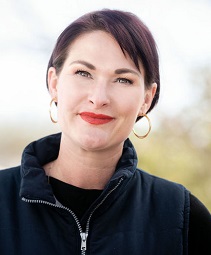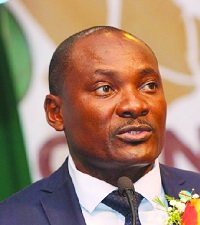
Social Con(Troll)

By Natasja Beylevel
Managing Director of NaMedia.
Churches, kings and states have for centuries attempted to control society. When not successful, it results in disconnect and revolt. Online and social media have created a platform for ‘Trolls’ and often use inflammatory messages to provoke emotional responses out of people, disrupting otherwise civil discussion. It is a disruptive technology in human practice, used as an outlet for self fame, or public indiscretion. Add this to the fact that people receive biased information even in most democracies, the foundation for their input.
Social control might be seen as an appeal to reason, employing education or propaganda, to influence perception and human behaviour. Call it a social suggestion, in an era where social media allows for thousands of journalists’, parties’, rights groups’, servants’ and leaders’ to make their suggestions on reputable (and not so reputable) platforms, once inaccessible to members of the public. Our media emphasises that almost 60% of the global population has access to the internet.
How do we endorse uniformity in digital (linked to social) conduct, and why is it of interest? We are creating virtual realities to escape into, yet we are seen as groups that need to somehow operate uniformly, in ambience.
One billion people are living in poverty. That is 1/8th of earth’s population. The fact is that small farmers, herders, and fishers produce about 70% of the global food supply. Yet, we focus on profit, planet and (people). Almost 17% of the world’s population is malnourished, yet we produce enough for everyone on the planet. Is this control in access, agenda, job market, salary brackets, budget allocation and implementation? Has social inequality become the means to maintain the perception of power? You can have access to the internet, but are you still trapped in poverty and hunger? With media facing suppression worldwide, so is the agenda that is shaped by those in power.
We have multi-billion-dollar agencies, organisations and programmes directed towards hunger and poverty. We have a legion of committees, sub-committees, research agencies, foundations, and fundraisers to combat hunger and poverty. How uniform are we in addressing these pressing needs, and to what extent is social control either operative or competent in ensuring impact and unity in social causes? Regulating social impact is pulling on a wishing bone, where you are stuck with a) what is deemed important to society or b) what is deemed necessary by those with power. Why does protocol (ego or ignorance) withhold the fast lane from social development?
Are we still considered winners and losers based on status and influence, deserving of a ‘social class inheritance’ rated by our education, upbringing and beliefs? Or has the change fought for by those in appalling circumstances been mummified into historical figures, monuments, and buildings that have become rather unsustainable to upkeep versus the need to continue social-change-momentum?
One of the most significant consequences of hunger is conflict. What are these conflicts about? Natural resources, power, religion, famine, money, drugs, profit, corruption. To what extent has social control tolerated and endorsed a society split into classes ‘of interests’? Have politics become too intertwined with ‘The economic of People’, where the weighing scale is put onto ‘trust in government’ and not another index that systematically removes failing institutions? Or have we become deadlocked into silos of perceived hierarchy and social purpose?
Institutional memory (history) has taught us to question those in power because it’s our job to do so. Become a victim to denial, scepticism, pure-criticism, inducing-factionalism, and apathy, then what? Habitual action restrains us towards non-deterministic behaviour. If enslaved to a victim mentality, how determine dare we that social change is possible?
If one-tenth of what the world had, was correctly allocated to those in need, we surpass the 1/8th crisis. I dare to question the efficiency of the state power in this regard, which is Africa has in most cases become the lion with a voracious appetite.
Digitalising information and access to information, products, access and distribution to financing supposedly cater to the individual’s needs. However, addressing social ills has become a corporate responsibility to investments returns and rewarding networks or partnerships. It looks good and feels good. Else it’s less palatable to stakeholders? Again the gap between science academics and public communications and awareness comes to mind. Shared knowledge and opinion formation is closely knitted into what is communicated above the awareness threshold. How accustomed are we to reading about financial results, local produce, imports and exports, sport, politics, in the sense that it has become an ‘easier read’ and more widely discussed via word-of-mouth, in comparison to putting Key Performance Indicators onto socially accountable development goals? Are we indirectly encouraging a victim mentality by sustaining fear of the unknown? Take this home: What do we talk about with peers regularly?
Our reference is the ‘hope to cure’ or the ‘hope to resolve’ or the ‘hope we can rely on. Has this been conditioned into us as a form of social control, to ‘let it be in the hands of those responsible? Why do we vote for political parties and bear interest in budget allocation, albeit become more and more powerless in the uncapped inefficiency of failing institutions?
The optimist would say that ruling Kingdoms and Parties should regroup, restructure, rethink and better partner with social movements for change (tick the box). In effect, having a large military with missiles will not resolve social disconnect nor define social control, rather a political ego. Power, in essence, promotes inequality if disrupting fundamental human rights such as access to food, political and economic stability, and global allocation of skills and resources. Perhaps social control remains biased towards power, more than with nature. Social uniformity should be kind to the nature of humankind and to the real needs of humanity. Restore human dignity, perhaps does not emphasise human superiority so much.
Let us call it social connect and let us call it servanthood again.













































